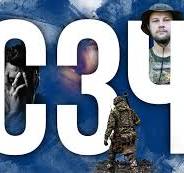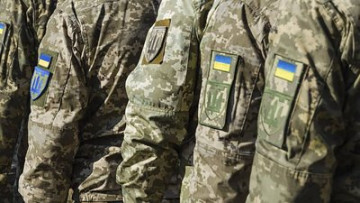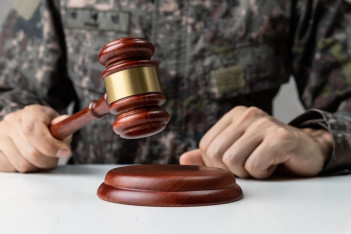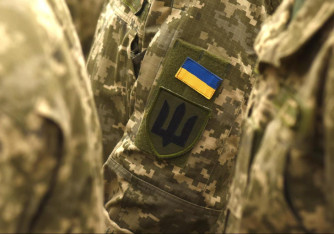Unauthorized Absence from the Unit (UA) is a serious breach of military discipline that can have significant legal consequences. However, in some cases, service members seek to return to duty after a UA. This article explores how to return to service after a UA, the steps that need to be taken, and the legal aspects to consider.
Definition of Unauthorized Absence from the Unit (UA)
Unauthorized Absence from the unit or duty station without the command's permission is a violation of military discipline, which can be classified as a criminal offense under Article 407 of the Criminal Code of Ukraine. Depending on the duration of the absence and the circumstances, such actions can lead to various types of punishment, including fines, arrest, or even imprisonment.
Legal Consequences of UA
When a service member commits an Unauthorized Absence, they may face the following consequences:
- Criminal Liability: in cases of prolonged absence, the service member may be subject to criminal liability.
- Administrative Penalties: if the absence was short and the service member returned voluntarily, administrative penalties are possible.
- Loss of Military Rank: in some cases, it is possible to be stripped of military rank.
- Compensation for Damages: if the unauthorized absence resulted in material damages, the service member might be obliged to compensate for them.
Let us take a good look at the punishment for the UA
Criminal liability for the arbitrary abandonment of a part is regulated by Article 407 of the Criminal Code of Ukraine. Depending on the duration of the absence and the circumstances, different types of punishments are provided.
Administrative Liability. If the period of absence was short and did not exceed 10 days, and the offense did not have serious consequences, the service member may be subject to administrative liability. This may include the following disciplinary measures: reprimand or severe reprimand, deprivation of the next leave, Deprivation of awards or decorations, demotion in military rank.
Disciplinary Liability. Regulated by the Disciplinary Regulations of the Armed Forces of Ukraine. A service member who has unauthorized absence from the unit may be subjected to disciplinary sanctions, which are neither criminal nor administrative but can have serious consequences for their military career.
Compensation for Damages. If unauthorized absence from the unit results in material damages, the service member may be required to compensate for these damages. This may apply to both state property and the property of other service members or civilians.
Procedure for Returning to Service After Unauthorized Absence (UA)
To return to service after unauthorized absence from the unit, certain steps must be followed, and the service member should be prepared for potential legal consequences.
- Voluntary Return: The first step in returning to service is voluntarily returning to the military unit. This reduces the risk of criminal prosecution and may help mitigate potential punishments.
- Informing the Command: After returning to the unit, it is necessary to immediately inform the command about the return and the reasons for the unauthorized absence. It is important to prepare a clear and truthful explanation of the actions taken.
- Submitting a Report: The next step is to submit a report to the unit commander. The report should provide a detailed description of the circumstances that led to the unauthorized absence, the reasons for the return, and express the willingness to continue service.
- Cooperation with Investigating Authorities: In case a criminal case is opened, it is crucial to cooperate with the investigating authorities. The service member must provide all necessary information and be prepared for investigative actions.
Question
Can the punishment be mitigated in the case of Unauthorized Absence (UA)?
Answer
Yes, it can. If the service member voluntarily returns, explains the circumstances, expresses remorse, and had a good record before the unauthorized absence, this may help mitigate the punishment. However, it is advisable to consult a military lawyer, as they can assist with the necessary documents, reports, and represent the client's interests in investigative bodies and, if necessary, in court.
Services of a Military Lawyer
In the event of a criminal case or administrative proceedings, it is crucial to have proper legal protection. It is recommended to contact a military lawyer who specializes in such cases and has experience in resolving them. Typically, the services of a military lawyer include the following:
- Risk Assessment: the lawyer will help assess the risks and potential consequences, and prepare a defense strategy. This may involve gathering evidence, testimonies, and other materials that may be useful for the defense.
- Preparation of Reports: the lawyer assists in preparing reports and other documents necessary to explain the circumstances of the unauthorized absence and the intention to return to service. A well-prepared report can play an important role in mitigating possible punishments.
- Drafting Petitions and Applications: the lawyer drafts petitions and applications to the command or investigative authorities, which may be necessary to resolve the issue of returning to service and minimizing legal consequences.
- Representation in Investigative Authorities: in the case of a criminal investigation, the lawyer represents the service member's interests in investigative bodies, participates in interrogations and other investigative actions, ensuring the protection of the client's rights.
- Representation in Court: in case of a judicial review, the lawyer will represent the service member's interests in court, provide legal consultations, and ensure proper defense.
- Additionally, the military lawyer's assistance may include negotiations with the command, preparation of explanations, and other measures aimed at closing the case at the administrative level or challenging decisions by the command that the service member believes are unjust. This may involve filing complaints with higher authorities or court.
Psychological Support
Returning to service after unauthorized absence can be psychologically challenging. Service members may experience stress, anxiety, or fear of potential consequences. In such cases, it is important to consult a psychologist or military psychologist, who can provide the necessary support.
Returning to service after unauthorized absence from the unit is a complex process that requires careful preparation and legal support. Service members in such situations need to act quickly and correctly to minimize potential negative consequences. Voluntary return, honesty with the command, and proper legal defense are key factors in successfully returning to service. For more detailed information or consultations, service members are advised to contact military lawyers or legal consultants who specialize in military law.
































